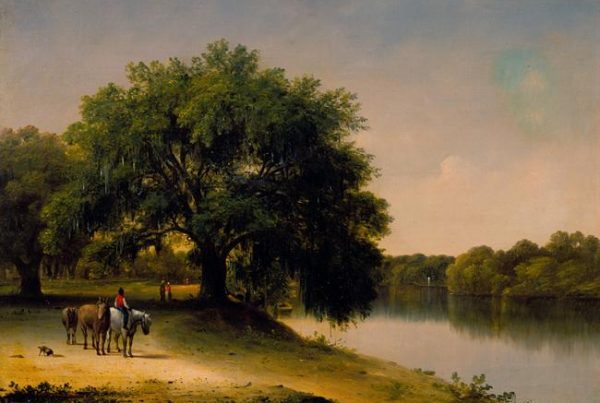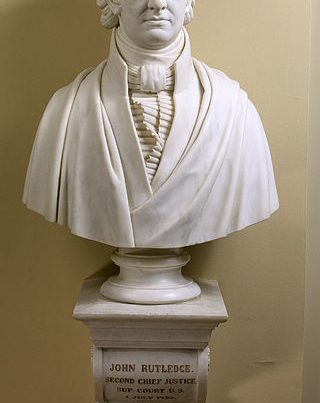
The true legacy of Lincoln usually gets drowned in the perennial gush about a president whose name is synonymous with freedom and the end of slavery. Lincoln’s role in bringing to an end the Jeffersonian ideal of a limited, constitutional government, with powers vested in sovereign states, remains relatively unexamined.
The direction in which Lincoln took America is not without significance for Canadians. For one, the current vilification of the Canadian West resembles in tenor the vilification of the American South. Westerners—and Quebecers—have grown accustomed to the boorish responses from government when they speak of exercising freedom of association by peaceful secession. The seeds of the assorted libel they confront can be traced to the Lincoln legacy.
As a chronicler of Lincoln, Professor Tom DiLorenzo notes, “in 1861 most Americans—North and South—still believed that the right of secession was fundamental to preserving freedom and self government.” There were the stirrings of the New England secessionists in 1803, as well as a secessionist movement of the Middle Atlantic States in 1861. The South’s battle, very plainly, was for its constitutionally guaranteed independence, framed by the Founding Fathers’ vision of a limited central government with little jurisdiction over state institutions.
The view of secession as the bulwark of liberty was widely echoed among prominent intellectuals and editorialists of the day. Lord Acton, the great classical liberal, viewed Southern secession as an attempt to preserve a constitutional liberty. Abolitionists in the North generally agreed that the South had a right to peacefully secede, as did they claim this right for themselves.
It would be ironic if this weren’t the case. After all, the American Revolution was born of secession from empire. The Constitution was a pact between sovereign states with which the ultimate power lay, and these states devolved to the central government its limited powers. With this “confederation of sovereign states,” the Founders intended to curb the overreach of a central government.
With only 15 percent of Southerners being slave owners, the South was no more fighting to preserve slavery than the North was fighting to abolish it. But let’s accept for the sake of argument Lincoln’s facade, and grant that slavery was the reason he waged the War Between the States, thus violating the Constitution.
Surely in order to redeem him, it’s essential to establish at the very least that to this alleged end, Lincoln was morally justified in causing the death of more than 620,000 people, the maiming of thousands, and “the near destruction of 40 percent of the nation’s economy?” To Mises Institute scholar David Gordon, the answer is clear: “The costs of an action,” writes Gordon in Secession, State & Liberty, “cannot be dismissed as irrelevant to morality.”
The Lincoln vision can certainly be gleaned from views such as the one he expressed in an 1862 letter to the New York Daily Tribune: “My paramount object…is to save the union, and is not either to save or to destroy slavery. If I could save the union without freeing any slave I would do it…” Keeping the races apart is another reoccurrence in Lincoln’s addresses.
Could he have held these racist views, the kind that made him a onetime supporter of a scheme advocating the shipping of slaves back to “their own native land,” and still wage war solely to free the objects of his derision? Perhaps, but unlikely given his subsequent actions.
For one, Lincoln’s Emancipation Proclamation guaranteed that slaves were freed only in the parts of the Confederacy inaccessible to the union army. Union soldiers, for their part, were permitted to confiscate slaves in rebel territory and put them to work for the union army. In areas loyal to the union, slaves were not emancipated. After the war, Lincoln offered little land to the freed men; most of the land was parceled off to his constituent power-base, the railroad and mining companies.
The economic undertow offers better insight into the Lincoln mission. The South, which supplied 75 percent of exports, was on the cusp of becoming a low tariff, free trade zone. Lincoln feared this would disadvantage the North, and in particular his rich industrialist supporters. Much like the Canadian equalization payments through which the government plunders the West, Lincoln imposed punitive tariffs as a means to distribute wealth from the South to northern manufacturers.
Of course, a less malevolent lot than Lincoln’s republicans could have instead edged the nation towards a peaceful prosperity by joining with England, France, other European countries, and the Confederate states between which free trade was underway. But for this, they would have to scale back tariffs and the political patronage these schemes afforded. Such a requirement would have been inimical to Lincoln’s Whig Party philosophical underpinnings, namely, protectionist tariffs, corporate welfare and fiat money, the essential building blocks of a centralized power.
Filling in the gaps in the Lincoln lore would not be complete without his rap sheet of civil liberties abuses. Like Bill Clinton, Lincoln conducted a war without the consent of Congress. He declared martial law, confiscated private property, suspended habeas corpus, imprisoning about 30,000 Northern citizens and 31 legislators without trial, censored telegraph lines, and shut down newspapers for opposing the war.






I’m curious to know where the “15 percent of all southerners were slaveholders” informationoriginated from? Dr John Hope Franklin of Harvard/Duke studied the 1860 census and said less the 5 percent of all southerners were slaveholders. Nearly 30 percent of all “Free People of Color in New Orleans” were slaveholders. Just curious as to why these findings are so different?
Thank you!
It’s seldom remarked upon that, in fact, chattel slavery meant that slaves, as property, were bought and sold. Lincoln and abolitionists from anywhere in the world could have purchased all the slaves in the US and freed them. The Whig/Republicans, living up to the morals of their intellectual predecessor Oliver Cromwell, preferred to kill their political opponents and destroy their property.
Furthermore, the Lincoln regime had no qualms about continuing the extermination of the native Americans standing in the way of Manifest Destiny. Freed blacks were formed into military units, the “Buffalo Soldiers”, whose sole purpose was the destruction of the native Americans.
The Brits bought their slaves in 1834. Issued bonds, bought and freed slaves. The DC crowd bought @ 900 slaves in 1862…during a War.
To purchase the remainder of the slaves would have done NOTHING for the yankees except to empower their enemies. Purchasing 4 million slaves at a fair market of 1000 dollars each would have cost 4 Billion dollars. How would the US pay this bill when the slaves picking cotton and tobacco accounted for 75 percent of federal revenue (after skimming tariffs off Southern exports) while annual federal revenue was @ a paltry 80 million dollars? You ever go visit a banker and tell him you’d like to borrow 4000 dollars when your income is 80 bucks? Incidentally, the GDP of the united States of America in 1860 was…wait for it…4 Billion dollars.
How ’bout you nasty ICE drivers give up the F250s and Corvettes we just sold you and get nothing in return? Oh, give up your houses, too. We have to confiscate a tad of property to deliver the USA’s GDP away from “the deplorable” 33 percent of the population…better dig into that 401k while you’re at it…and suffer an IRS penalty, cuz, hey, it’s the law and no one is above the law.
And yes, as I have told my Buffalo soldier friends, “they’re coming after you, next”.
The War ended the question of, “Is it the united States or The United States?” The War stole immense wealth from the South. Wars are about money…the Freedman Bureau authorized confiscation and redistribution of former Confederate private property to free blacks and “loyal” whites. Think that wasn’t about money and buying votes? Interestingly enough, that piece of legislation was signed into law prior to the end of the War. We wouldn’t have to wait long for the Southern Homestead Act of 1866 to further reward free blacks and white unionists…at the exclusion of former Confederates for the first 6 months of the life of the Act. Go further back and you will find the Confiscation Acts of 1861 and 1862…think that wasn’t about money?
Kill their political opponents and “steal” their property. Destroy what you can’t run off with.
Thanks for a well written article about the dishonesty, not only historically, but currently, about the reason for a wart that Lincoln waged against a sovereign nation, the CSA, and the destruction and occupation dealt to the southern states till this day.
Great review of Lincoln’s war upon liberty. Thanks, and keep up the good work.
Slavery in the south was not an ignoble institution. I wish intelligent people like Ilana Mercer stop repeating leftist platitudes.